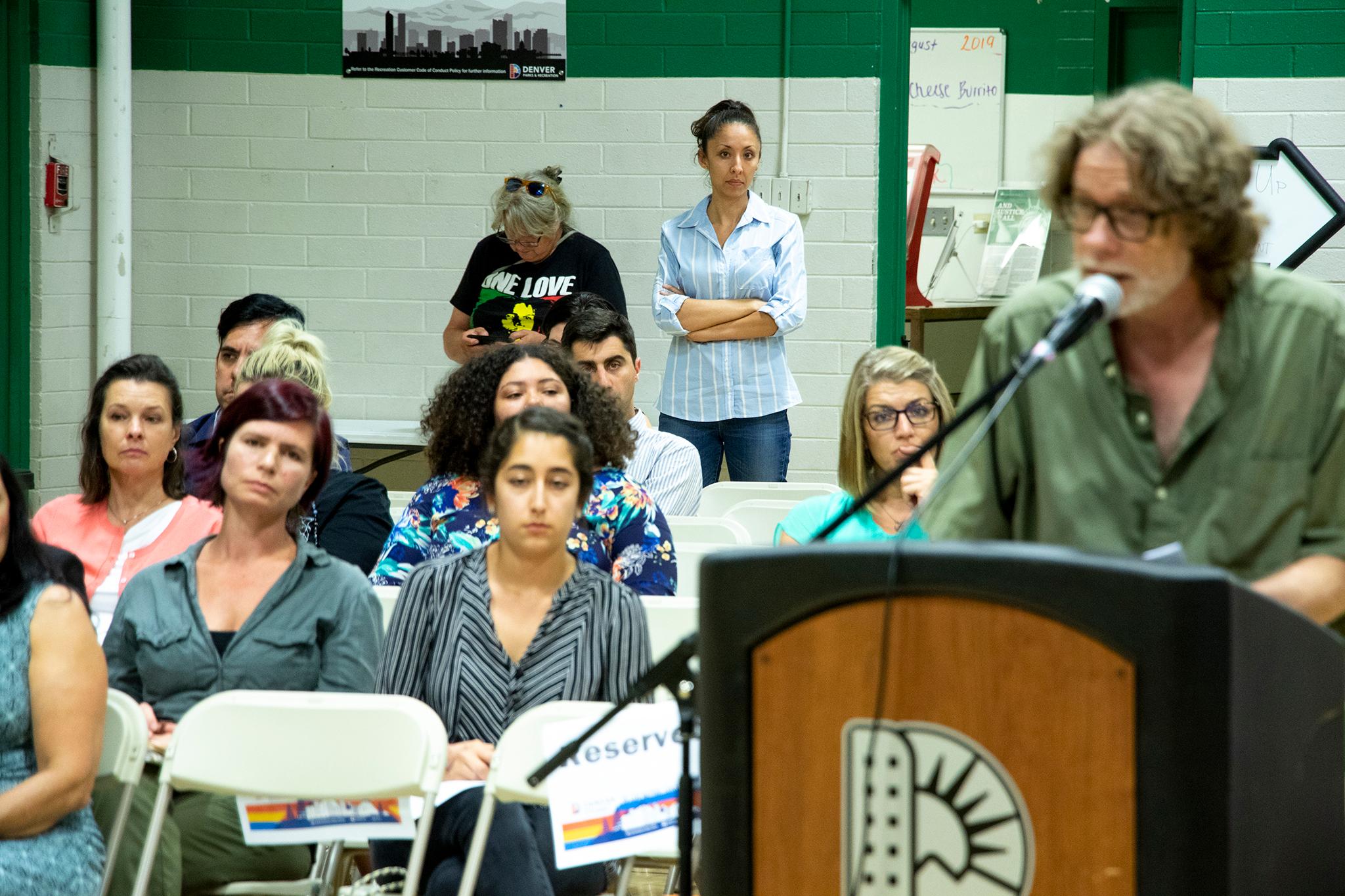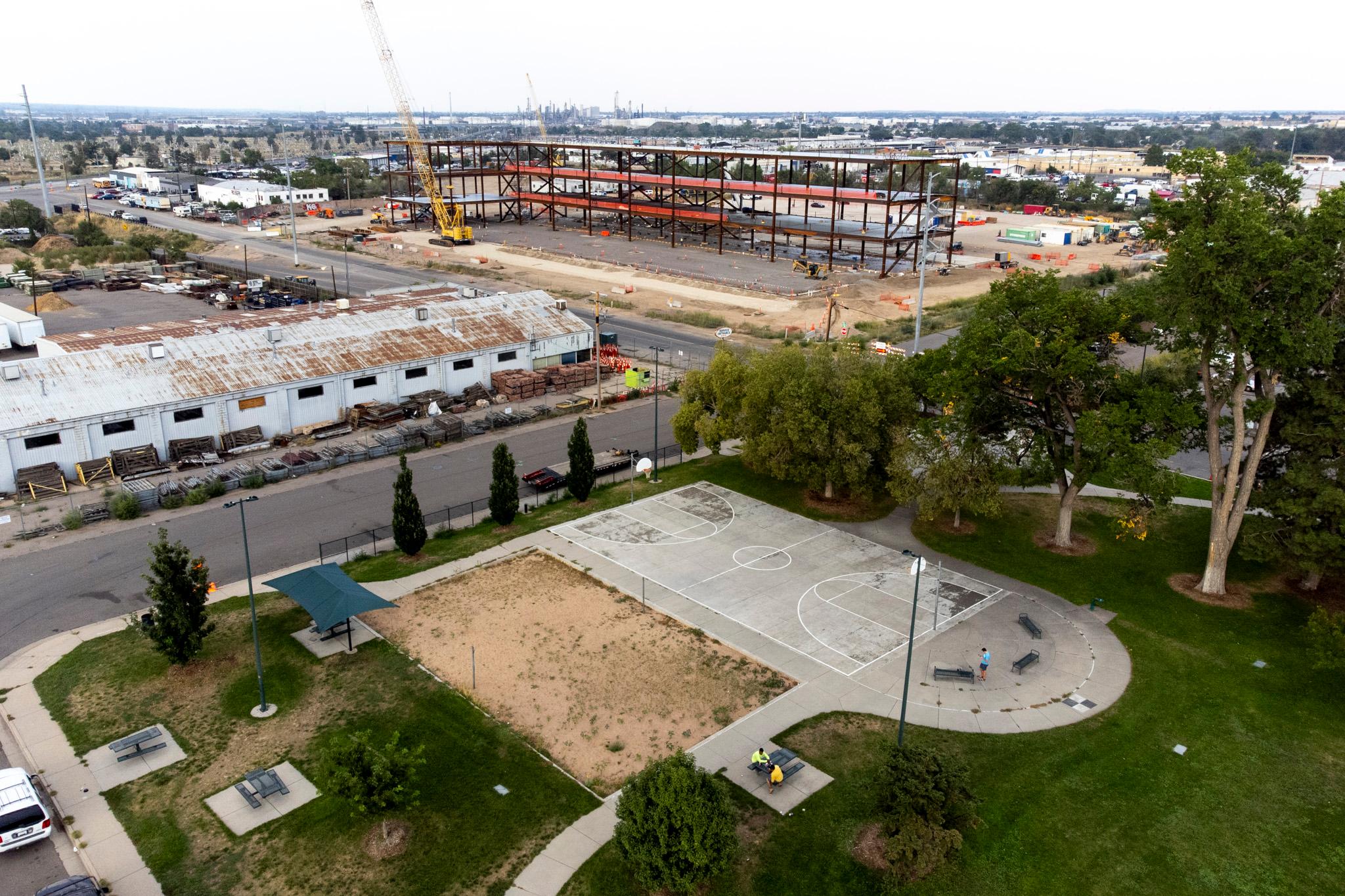The Denver Board of Public Health and Environment signed off on a one-year permit Thursday for Kiewit Meridiam Partners, the consortium widening I-70, to exceed normal noise pollution limits for another year.
Kiewit Infrastructure Co. wanted a three-year allowance to last them through the end of the project, which will add four lanes to a 10-mile stretch of I-70 to make room for more cars and trucks.
The board voted 4 to 1 to extend the permit for one year. The decision was a small victory for residents in Globeville and Elyria-Swansea, including City Councilwoman Candi CdeBaca, who wanted the contractors' noise-making to get audited again before they demolish the viaduct between Colorado and Brighton boulevards. That portion will likely be the loudest of the project, a Kiewit rep said. Razing the elevated highway will take between two and six months.
Denver's public health department had recommended a middle ground of 18 months. But in the end, the board was moved by hours of testimony from locals who said they and their children can't sleep, which has rippling health effects.
"It's important to note the siege of noise pollution that people in Globeville, Elyria and Swansea live under," said Debbie James with Unite North Metro Denver, a local neighborhood organization. "This is what environmental racism looks like." Part of the crowd gathered at Swansea Recreation Center cheered.

Residents live with pollution from the highway and industry that has disproportionately affected these neighborhoods, which are predominantly Latinx and low-income, according to a 2014 city-led assessment. Activists' bid to stop the Colorado Department of Transportation project altogether failed in recent years.
Kiewit says it received just six noise complaints since it started construction.
Neither the public health board nor the public health department found evidence that the company exceeded its permitted decibel limits during the first round of construction.
Records show that the company butted up against its allotted noise limits, but never crossed the line. Some residents thanked Kiewit and praised them for their community outreach efforts aimed at mitigating harm from the multibillion-dollar expansion.
"We know we're building an interstate through the middle of a neighborhood," said Tom Howell, the area manager for Kiewit. "We want to be good neighbors."
In addition to the one-year extension of the permit, the board signed off on a policy requiring days-long breaks in noise-making construction in some areas, depending on how long the activities last and how loud they are in a given area.
The next battlefront between neighbors and Kiewit is about disruptive vibrations, which made at least one kid think Denver was having an earthquake.
On Thursday, neighbors complained more about disruptive vibrations than loud noises.
"My main concern is vibration -- vibration that has been so intense that at 3 a.m. my 8-year-old, as his bunk bed is nailed into the wall, woke me up to alert me of an earthquake that we were having," said Raquel Casillas who lives next to the Vasquez Boulevard offramp.
Casillas and others complained of headaches and other effects of sleepless nights. Several worried about the soundness of their foundations, which sit under houses well over 100 years old in some cases.
But the public health and environment board said bad vibrations are out of their hands. Nothing in the noise permit addresses vibrations, and lawyers for Kiewit and the city agreed that there is no clear ordinance addressing the disturbance.

"We acknowledge that it's a legitimate concern ... however we do not have any standards in order or in regulation that address vibration," said board member Chris Wiant, who voted for the one-year permit.
Wiant and staffers from the public health department said the city will look into developing standards and enforcement methods to curb vibrations.
The I-70 project is 28 percent complete, according to Kiewit's Howell. It's expected to last three more years.














